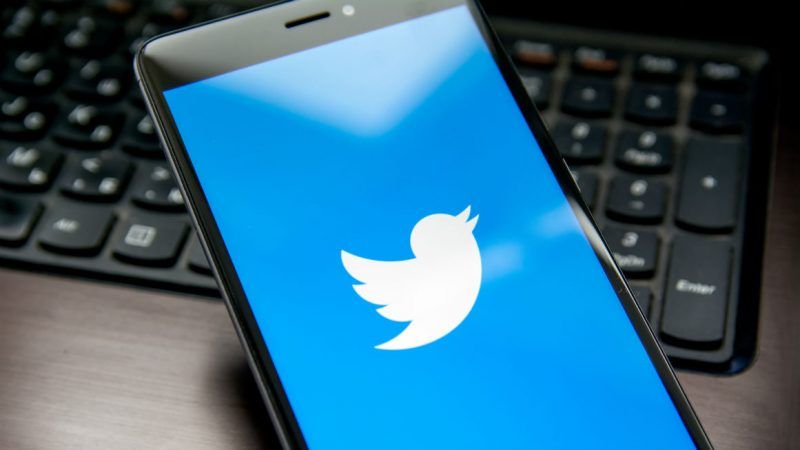India Wants Twitter To Participate in Government Censorship
Social media platforms may marginally support free speech. Government censors are trying to stop that.

On Tuesday, Twitter announced that it had filed suit against the Indian government alleging that it interpreted a suite of 2021 laws too broadly when ordering the company to censor dissident users in the country. The lawsuit comes in response to increased pressure from the ruling Bharatiya Janata Party (BJP), which in recent weeks has ordered Twitter to block the posts and accounts of dissidents. According to CNN, a source familiar with the suit said that the company will attempt to show that the government's orders "demonstrate excessive use of powers and are disproportionate."
The 2021 regulations Twitter is now fighting gave India's government the ability to demand that social media companies block certain posts or accounts in the country. Further, the Indian government has required social media companies to locate their compliance officers within the country so that they can be held criminally liable if the company fails to comply with government orders.
While Twitter has complied with orders, the suit marks a major act of resistance against the Indian government's calls to censor dissident content. In 2021, WhatsApp filed a similar suit, attempting to prevent the government from forcing the company to make all messages "traceable" upon request. That order, according to the company, would "severely undermine the privacy of billions of people who communicate digitally[.]" WhatApp's suit is still ongoing.
Twitter's suit highlights an important issue faced by social media platforms: What to do when local laws demand they participate in politically-motivated censorship? Increasingly, censorious governments are attempting to deputize tech companies to do their dirty work for them—forcing companies to censor, block, or even track the whereabouts of government critics. While these companies may have values which marginally attempt to protect free speech, oppressive governments often coerce tech companies into collaborating.
Governments all around the world have enlisted tech companies to carry out local censorship missions. In 2024, the European Union's Digital Services Act will take effect, forcing tech companies to sharply regulate their platforms. The legislation requires companies to take down content deemed as hate speech, or disinformation—two broad categorizations that can easily morph into broad state censorship. In Germany, hate-speech laws require companies like Twitter to report users to law enforcement. As one Twitter spokesperson said, the law "forces private companies into the role of prosecutors by reporting users to law enforcement even when there is no illegal behaviour."
While the threat of criminal liability for employees (India-based executives found guilty of violating censorship orders could face up to seven years in prison) might prevent companies from outright refusing to comply with censorious regulations, lawsuits like Twitter's are a clear step in the right direction.
However, the future increasingly appears to offer social media companies a choice between participating in government-mandated censorship and surveillance, or ceasing operations entirely in those countries. The first entails participating in considerable injustice, the other could involve reducing their customer base by billions.


Show Comments (36)